- Home
- Gustave Aimard
The Pirates of the Prairies: Adventures in the American Desert Page 12
The Pirates of the Prairies: Adventures in the American Desert Read online
Page 12
CHAPTER XII.
BLACK CAT.
In order to understand the ensuing incidents, we are compelled to returnto the maidens whom we left at the moment when they escaped from RedCedar's camp, escorted by the Canadian hunters.
The fugitives stopped a few moments before sunrise on a little tongue ofsand forming a species of promontory a few yards in length on the watersof Gila, which were rather deep at this point, whence the river orprairie could be surveyed.
All was calm and tranquil in the desert. The impetuous Gila rolled alongits yellowish stream between two banks clothed with wood and thickchaparral. Amid the dark green branches thousands of birds were strikingup a concert, with which was mingled at intervals the lowing of thebuffaloes.
The first care of the hunters was to kindle a fire and prepare themorning meal, while their hobbled horses nibbled the young tree shoots.
"Why breakfast already, Harry?" Ellen asked, "When we have beentravelling hardly four hours."
"We do not know what await us in an hour, Miss Ellen," the hunteranswered; "hence we must profit by the moment of respite Providencegrants us to restore our strength."
The maiden let her head droop. The meal was soon ready, and when it wasover they remounted and the flight commenced.
All at once, a shrill and peculiar whistle was heard in the tall grass,and some forty Indians, as if emerging from the ground, surrounded theparty. At the first moment, Ellen fancied that these men were the Coraswarriors Eagle-wing was to bring up; but the illusion lasted a veryshort while, and a glance sufficed for them to recognise Apaches.
Dona Clara, at first alarmed by this unexpected attack, almostimmediately regained her coolness, and saw that any resistance wasimpossible.
"You would sacrifice yourselves in vain for me," she said to theCanadians; "leave me temporarily in the hands of these Indians, whom Ifear less than Red Cedar's gambusinos. Fly, Ellen--fly, my friends."
"No!" the American girl exclaimed, passionately; "I will die with you,my friend."
"The two women will follow us, as well as the paleface hunters," one ofthe Indians commanded.
"For what purpose?" Dona Clara asked, softly.
At a sign from the chief, two men seized the young Mexican lady, andtied her to her horse, though not employing any violence.
With a movement swifter than thought, Harry lifted Ellen from hersaddle, threw her across his horse's neck, and trying a desperateeffort, threw himself, followed by Dick, into the thick of the redskins.Employing their rifles like clubs, they began felling the Apaches. Therewas, for a moment, a terrible contest, but at length Harry succeeded,after desperate efforts, in forcing his way, and set off at full speed,bearing with him Red Cedar's daughter, who had fainted from terror.
Less lucky than he, Dick, after felling two or three Indians, was hurledfrom his horse, and nailed to the ground by a lance. The young man, infalling, cast a despairing glance at her whom he had been unable tosave, and for whom he died. An Indian leaped on his body, raised hisscalp, and brandished it, all blood dripping, with cries of ferociouslaughter, before the eyes of Dona Clara, who was half dead with terrorand pain. The redskins then started at a gallop, carrying off their preywith them.
The Indians are not in the habit now-a-days of ill-treating theirprisoners as they used to do, especially if they are women. Hence DonaClara's abductors had not made her endure any unkind treatment.
These Indians formed part of an Apache war party, about one hundredstrong, and commanded by a renowned chief, called Black Cat. All thesewarriors were well armed, and mounted on handsome and good horses.
Immediately after capturing the maiden, they started at a gallop acrossthe prairie for nearly six hours, in the hope of outstripping any partythat might start in pursuit, and toward nightfall they halted on thebanks of the Gila. At this spot the river flowed majestically betweentwo escarped banks, bordered by lofty rocks carved in the strangestfashion. The ground was still covered by a grass at least three feethigh, and a few clumps of trees scattered over the plain agreeablydiversified the landscape, which was enlivened by flocks of buffaloes,elks, and bighorns, which could be seen feeding in the distance.
The Indians raised their tents on a hill, from the top of which a veryextensive view could be enjoyed. They lit several fires, and prepared topass the night in waiting for the other warriors to join them. DonaClara was placed by herself in a tent of buffalo skins, in which a firewas lighted, as at this advanced season the nights are cold in the FarWest.
Accustomed to desert life, and familiarised with Indian customs, DonaClara would have patiently supported her position, had it not been forthe thought of the misfortunes which had so long crushed her, and of herfather's fate of which she was ignorant.
Seated on buffalo skins by the fire, she had just finished eating a fewmouthfuls of roast elk, washed down with smilax water, and wasreflecting deeply on the strange and terrible events which had markedthis day, when the curtain of the tent was raised, and Black Catappeared.
The chief was a man of lofty stature. He was upwards of sixty years ofage, but his hair was still black. He enjoyed in his tribe a reputationfor courage and wisdom, which he justified in every respect. A cloud ofsorrow veiled his naturally soft and placid features. He walked slowlyin, and took a seat by the side of Dona Clara, whom he regarded for somemoments with interest.
"My daughter is afflicted," he said, "she is thinking of her father, herheart is with her family; but my daughter will take courage, and not becast down. Natosh (God) will come to her, and dry her tears."
The young Mexican shook her head sadly, but made no reply; the chiefcontinued--
"I also suffer: a cloud is very heavy on my mind. The paleface warriorsof her nation wage an obstinate war with us, but I know the way to makethem assume the feet of antelopes, to fly far from our hunting grounds.Tomorrow, on reaching the village of my tribe, I will have recourse to agreat medicine. My daughter will console herself; no harm will happen toher among us; I will be her father."
"Chief," Dona Clara answered, "lead me back to Santa Fe, and I promiseyou my father will give you as many rifles, powder, bullets, and lookingglasses as you like to ask of him."
"That is not possible; my daughter is too precious a hostage for me tothink of surrendering her. My daughter must forget the whites, whom shewill never see again, and prepare to become the wife of a chief."
"I!" the maiden exclaimed in terror, "Become the wife of an Indian?Never!--make me undergo all the tortures you please to inflict on me,instead of condemning me to such a punishment."
"My daughter will reflect," Black Cat answered, "of what does the WhiteLily of the Valley complain? We are only doing to her what has been doneto us frequently--that is the law of the prairies."
Black Cat rose, giving Dona Clara a mingled glance of tenderness andpity, and slowly left the tent.
After his departure the poor girl fell into a state of utterprostration; the horror of her position appeared before her in all itstruth.
The night passed then for her, weeping and sobbing, alone, amid thelaughter and songs of the Apaches, who were celebrating the arrival ofthe warriors of their detachment.
The next morning, at daybreak, the warriors started again, several menwatching the movements of the prisoner; but Black Cat kept aloof fromher.
The Indians marched along the Gila, through a yellowish prairie.Gloomy lines of chaparral, intersected by trees, whose red orgrayish-brown colour contrasted with the yellow frondage of the poplars,bordered the road; on the horizon rose grand hills of a whitish grey,covered with patches of coloured grass and dark green cedar.
The band undulated like an immense serpent in this grand desert,proceeding towards the village, whose approaches could already bedetected by the mephitic miasmas, exhaling from scaffoldings, seen inthe distance, on which the Indians keep their dead, and let themdecompose, and dry in the sun, instead of burying them.
At about two o'clock the warriors entered the village, amid the shou
tsof inhabitants, and the sound of the chichikouis, mingled with thefurious barking of the dogs.
This village, built on the top of a hill, formed a tolerably regularcircle. It was a considerable number of earth huts, built without orderor symmetry. Wooden palisades, twelve feet high, served it as ramparts,and at equal distances four bastions of earth supplied with loopholes,and covered inside and outside with intertwined willow branches,completed the system of defence. In the centre of the village was avacant space, of about forty feet in diameter, in the centre of whichwas the "ark of the first man," a species of small round cylinder,formed of wide planks, four feet high, round which creepers twined. Tothe west of the spot we have just described was the medicine lodge,where the festivals and religious rites of the Apaches were celebrated.A mannikin made of animal skins, with a wooden head, painted black, andwearing a fur cap, decorated with plumes, was fixed on a tall pole, torepresent the spirit or genius of evil. Other quaint figures of the samenature were dispersed in various squares of the village, and wereofferings made to the lord of life.
Between the huts was a great number of several storied scaffoldings, onwhich the maize, wheat, and vegetables of the tribe were drying.
Black Cat ordered Dona Clara to be conducted to a _calli_ he hadinhabited for a long time, and whose position, in the centre of thevillage, offered sufficient guarantee for the security of the prisoner.He then went to prepare himself for the great magical conjuration, bywhich he hoped to destroy the palefaces, his enemies.
When Dona Clara found herself alone, she fell despondingly on a pile ofleaves, and burst into tears. The cabin serving her as a prison was likeall the rest in the village; it was round, and slightly arched at thetop; the entrance was protected by a species of porch, closed with adried skin, stretched on the cross sticks. In the centre of the roof wasan orifice, intended to let the smoke out, and covered with a sort ofrounded cap made of sticks and branches. The interior of the hut waslarge, clean, and even rather light.
The mode of building these abodes is extremely simple. They consist ofeleven to fifteen stakes, four or five feet in length, between whichshorter ones are placed very closely together. Upon the higher polesrest long beams, inclining to the centre, and which, placed very closeto each other, support the roof. Externally, they are covered with asort of trellis work, made of branches, fastened together with bark;straw is laid over them, and earth on the top of that again.
The maiden, although she was so wearied, did not feel the slightestinclination to repose on the bed prepared for her. It was formed of along parchment box, with a square entrance; the interior was lined withseveral bears' skins, on which she could have stretched herselfcomfortably, but she preferred crouching in the centre of the hut, nearthe hole in which the fire, lit to protect her from the cold, was on thepoint of expiring.
Toward midnight, at the moment when, despite her firm resolution to keepawake, she was beginning to doze, Dona Clara heard a slight sound at theentrance of her hut. She ran hastily, and by the dying flashes of thefire, perceived an Indian warrior.
It was Eagle-wing. The maiden suppressed with difficulty a cry of joy atthe sudden appearance of the Coras Chief. The latter laid a finger onhis lip; then, after looking scrutinisingly around, he walked up to themaiden, and said in a voice soft as a sigh:
"Why did not the Lily follow the road laid down Eagle-wing? Instead ofbeing at this hour the prisoner of the Apache dogs, the pale virginwould be by her father's side."
At this remark a heart-rending sob burst from Dona Clara's bosom, andshe hid her face in her hands.
"The Apaches are cruel, they sell women. Does my sister know the fatethat threatens her?"
"Too well, alas!"
"What will my sister the Lily do?" the Indian asked.
"What I will do?" the Mexican girl answered, her eye suddenly gleamingwith a dark flash; "A daughter of my race will never be the slave of anApache; if my father will give me his knife, he will see whether I feardeath."
"It is well," the sachem continued; "my sister is brave; great courageand cunning will be needed to succeed in what I am about to attempt."
"What does my brother mean?" the maiden asked, with a lively movement ofhope.
"My sister will listen; the moments are precious; has the Lilyconfidence in me?"
Dona Clara looked the Indian in the face; she regarded his honestcountenance for a moment, then, seizing the warrior's hand and pressingit in hers, said warmly:
"Yes, yes, I have confidence in you, Eagle-wing; speak, what do you askof me?"
"To save you, I, an Indian, am about to betray the men of my race," thesachem proceeded sadly; "I do not say this to heighten the value of mydeed, sister; I will restore you to your father. Tomorrow Black Cat willundergo, in the presence of the whole tribe, the great medicines of thesweating cabin, in order that Bloodson may fall into his hands with allthe warriors he commands."
"I know it."
"My sister will be present at the ceremony. She must pay attention to myslightest signs, but, above all, must be careful that none of the Apachewarriors notice the glances she exchanges with me, or we shall both belost. Till tomorrow."
Then, bowing with a respect blended with tenderness, Eagle-wing left thecalli. Dona Clara fell on her knees, clasped her trembling hands, andaddressed a fervent prayer to Heaven. Without, the barking of the dogscould be heard, mingled with the howls of the coyotes, and the measuredsteps of the Apache warriors watching the hut.
Moukapec was one of the sentinels.

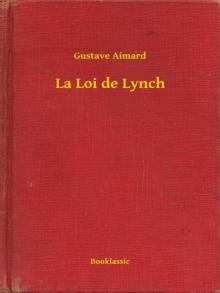 La loi de lynch. English
La loi de lynch. English The Guide of the Desert
The Guide of the Desert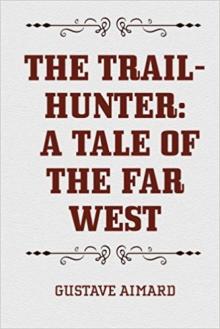 The Trail-Hunter: A Tale of the Far West
The Trail-Hunter: A Tale of the Far West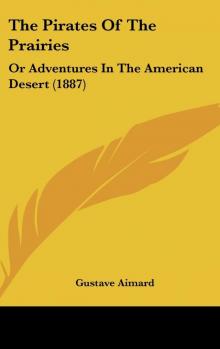 The Pirates of the Prairies: Adventures in the American Desert
The Pirates of the Prairies: Adventures in the American Desert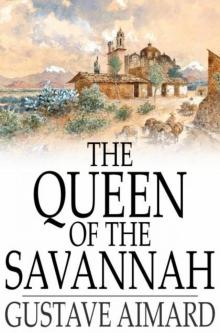 The Treasure of Pearls: A Romance of Adventures in California
The Treasure of Pearls: A Romance of Adventures in California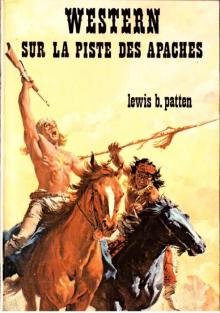 Les outlaws du Missouri. English
Les outlaws du Missouri. English Les trappeurs de l'Arkansas. English
Les trappeurs de l'Arkansas. English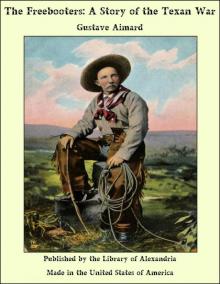 The Border Rifles: A Tale of the Texan War
The Border Rifles: A Tale of the Texan War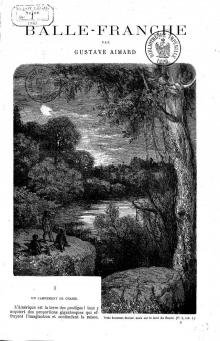 Balle-Franche. English
Balle-Franche. English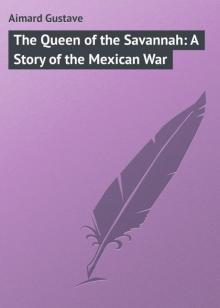 The Queen of the Savannah: A Story of the Mexican War
The Queen of the Savannah: A Story of the Mexican War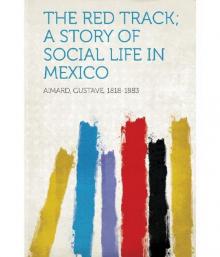 The Red Track: A Story of Social Life in Mexico
The Red Track: A Story of Social Life in Mexico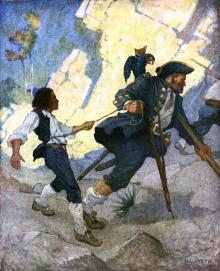 La fièvre d'or. English
La fièvre d'or. English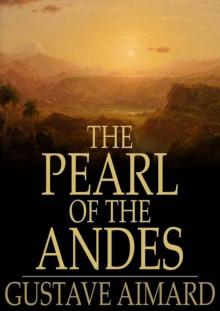 The Pearl of the Andes: A Tale of Love and Adventure
The Pearl of the Andes: A Tale of Love and Adventure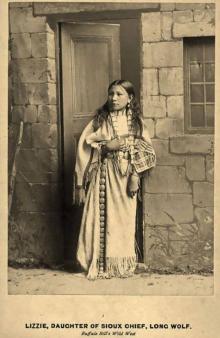 Les fils de la tortue. English
Les fils de la tortue. English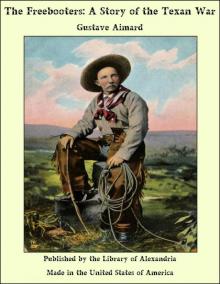 The Indian Chief: The Story of a Revolution
The Indian Chief: The Story of a Revolution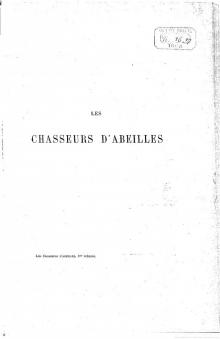 Les chasseurs d'abeilles. English
Les chasseurs d'abeilles. English The Adventurers
The Adventurers